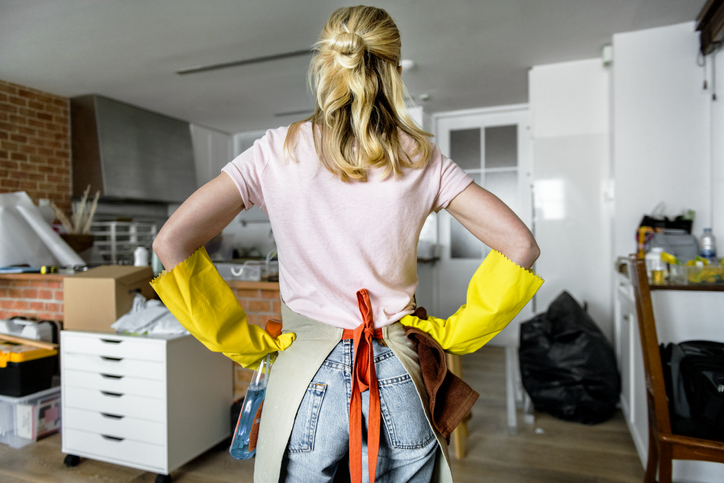Good housekeeping isn’t just about tidying up your home or office after work; it’s an important safety practice that improves the health and well-being of everyone involved in any project or company. From construction to cleaning, good housekeeping practices help to create a safe and hazard-free environment by making sure your equipment, tools, etc. are ready to use and working properly.
Why is it important to practice good housekeeping? 
We all know that keeping an organized home or office makes it easier to find your keys, prevents you from having to dig through piles, and keeps the place tidy and critter-free. But there’s another huge benefit to good housekeeping that’s not immediately obvious — it helps keep you safe when you’re at home or at work! To prove it, here are just a few examples of how good housekeeping can improve your safety:
- Reduces trip, slip, and fall hazards.
- Decreases the probability of fires starting and/or spreading quickly.
- Allows individuals to exit the building faster and more safely in an emergency.
- Reduces risk of liability claims.
- Helps prevent harboring pests that can cause building damage or health concerns.
What does good housekeeping look like?
A clean and orderly environment is less likely to have accidents, and if an accident does occur, it will be easier to spot and correct the hazard. When everyone in a workplace or home practices good housekeeping, it creates a culture of safety that can help reduce the overall number of accidents.
Check out a few suggestions for good housekeeping practices:
- Ensure that all doorways, hallways, and especially stairways are always kept clear of clutter and unnecessary items.
- When working on a project, keep walkways clear of temporary wiring & extension cords.
- Ensure that there is always a dedicated 3-foot clearance around and in front of all utilities such as, but not limited to, furnaces, heating units, water heaters, and circuit breaker panels.
- Be sure to remove all unwanted items such as wood pallets, used tires, or other debris from the property to prevent the likelihood of injury or fire.
- Keep surfaces clean and wiped down regularly to prevent grease or particle buildup on counters, appliances, and floors.
- Avoid allowing used and oily rags to be left out or discarded in normal trash cans with other combustible trash. Oily rags should be discarded in a designated metal container, such as a metal trash can with a cover.
- Always ensure that all flammable containers are stored in a closed, non-combustible metal cabinet away from any sources of heat.
- Avoid storing items such as boxes, tools, or construction materials stacked at a high level, or in a way that could cause them to fall.
- Have a spill response policy or procedure in place to react in a timely manner to any spills that might occur; removing the spilled mess before injury or property damage can occur.
Tips for Maintaining Good Housekeeping Habits
Making good housekeeping habits part of your routine is the best way to mitigate future issues. Schedule regular cleaning times and stick to them. This will help you stay on top of things and prevent messes from getting out of control.
Don’t let clutter build up. Clutter can create trip hazards and create safety hazards. Keep things organized and in their proper place. This will help you stay efficient and prevent accidents.
For more tips on keeping your piece of the world safe, check out our Safe Zone blog here.